Want to make your household that bit more environmentally friendly?
Here are some quick set-and-forget options that get you that bit greener without a whole load of hassle.
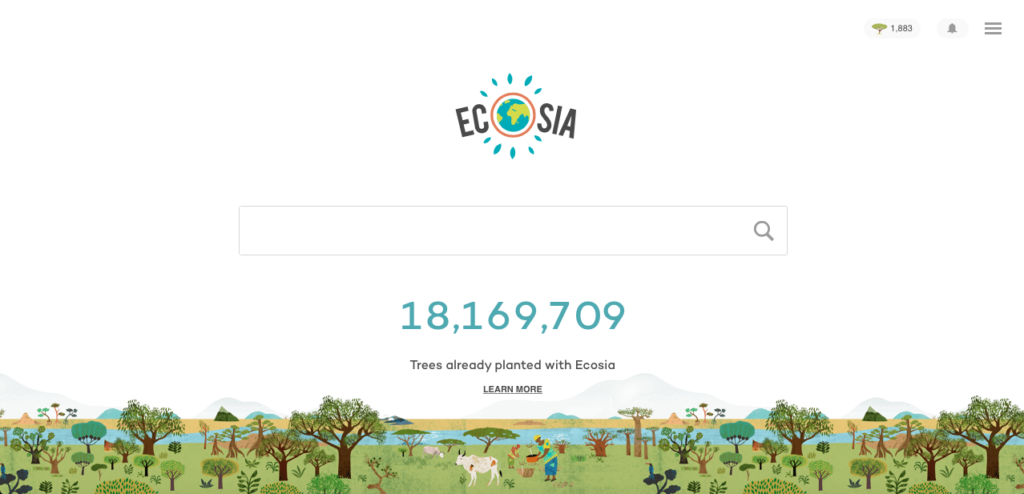
1. ECOSIA
A search engine that plants trees with its ad revenue. Simple.
In the same way that google will show a handful of sponsored results at the top of each search result, so does Ecosia. Except it’s using that income to try and plant 1 billion trees by 2020. Even if you don’t click on a sponsored link, your usage still gives Ecosia greater leverage to attract those advertising deals which fund the projects.
The search engine runs as a free easy-to-install plugin for standard browsers and there is also a mobile app. If you’re going to be clicking around the internet, you might as well help plant some trees whilst you’re at it. And there’s a handy counter to help you keep track!
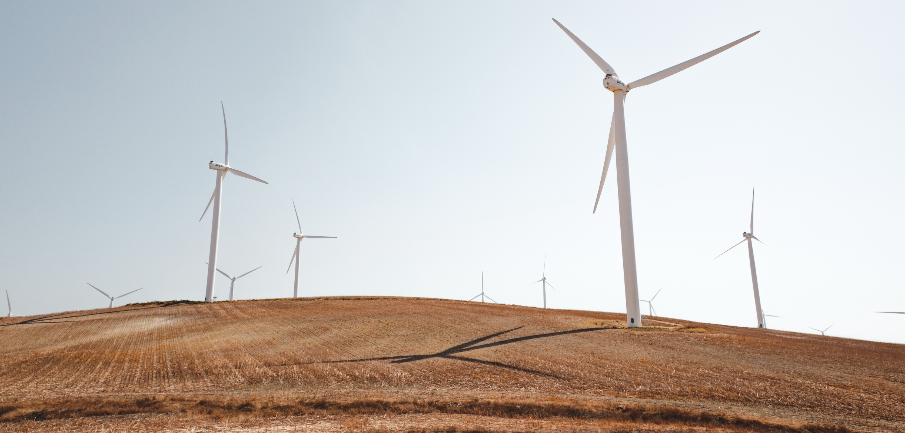
2. SWITCH TO A GREEN ENERGY SUPPLIER
Whilst traditional energy prices continue to rise, the maturation of green technologies means the cost of clean energy continues to decrease even as its availability to all increases.
Price comparison websites like uswitch and Which? now offer a green plan search filter for easy evaluation when shopping around for your next contract. If your current deal is coming to an end, take a look. The rates are likely more competitive than you think.
There are currently two main suppliers in the UK, Good Energy and Ecotricity, and more, like Bristol Energy, are popping up all the time. Unlike the average big energy supplier’s fuel mix of around 20% renewables, these companies offer much more comprehensive packages, with up to 100% renewably sourced energy.
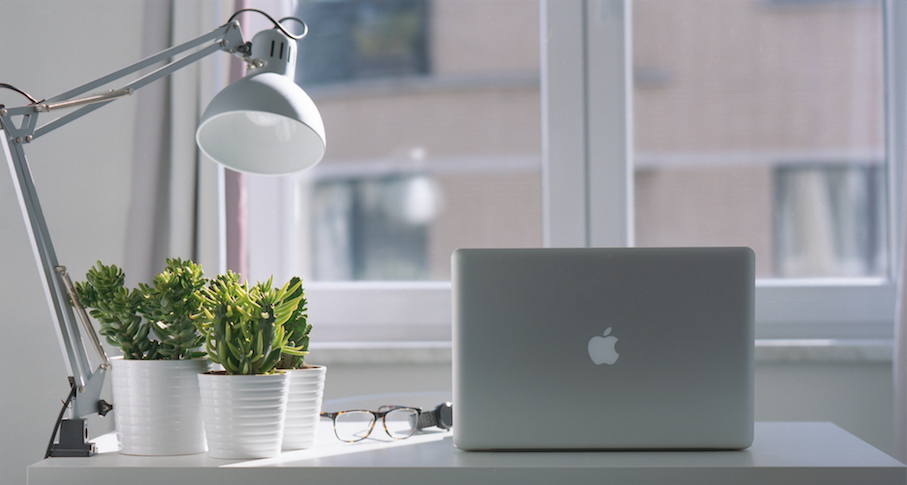
3. ECO BULBS IN THE HOUSE
Lumens for less watts means a reduced energy bill, plus reduced replacement costs as the bulbs themselves last longer.
If you’re not sure, select light bulbs from this energy costs calculator, and type in the number and wattage value. Then try again with a low energy version and see the difference. It all adds up.
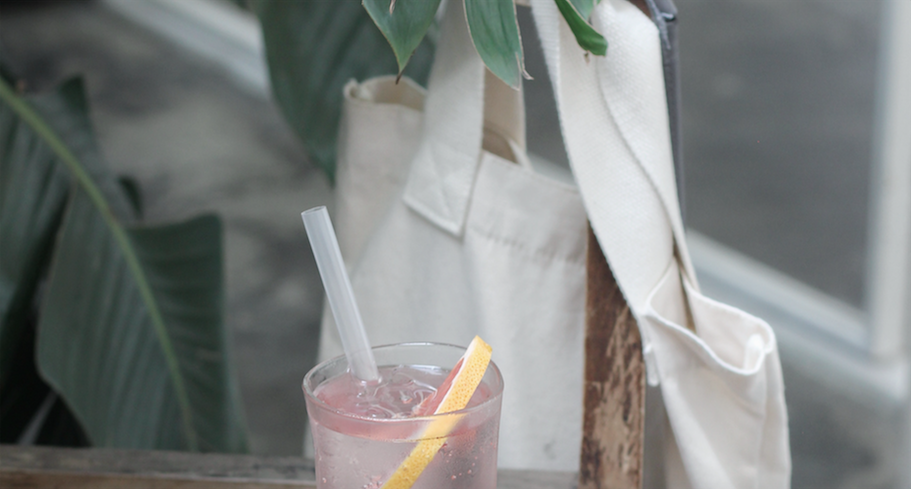
4. BAG FOR LIFE
I loved rail journeys as a child, watching the scenery blur by. However, I also remember large stretches of track-side embankment strewn with slowly disintegrating plastic bags. They’d caught in trees and undergrowth, and now our oceans and landfill are full of them too.
On the 5th October 2015, the UK government finally caught up with the rest of Europe in implementing the 5p charge for single-use plastic bags with the aim of reducing their usage. Yet even now, we still can’t seem to kick our addiction to plastic.
A bag for life may not be 5p upfront but it’s cheaper in long run, and a small change that collectively makes a big difference. In the mean time, many UK supermarkets have a recycling collection point for old plastic bags.
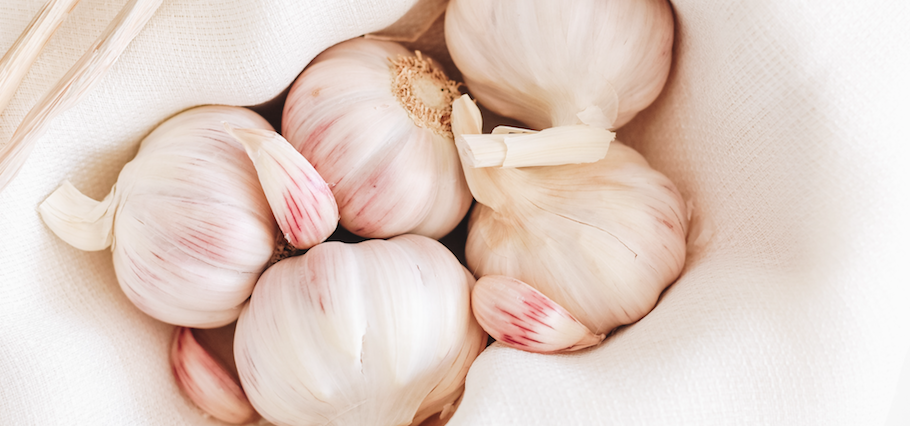
5. BEESWAX FOOD WRAPS
Continuing on the theme of plastic footprint reduction options…
A great alternative to icky cling film, cotton food wraps infused with beeswax can be used to make sandwich pouches, encase items or cover bowls and, best of all, are reusable. Typically combined with jojoba oil for its antibacterial properties, these nifty wraps are mouldable into all kinds of shapes using nothing but the warmth of your hands.
Various suppliers are available including Abeego, Beeswrap, and Wrappa for the Aussies out there.

6. BAMBOO IS BEAUTIFUL
Switch plastic handled toothbrushes, hairbrushes, makeup brushes, kitchen scrubbing brushes and cotton wool buds for sustainable bamboo based ones when they wear out or run out.
It’s a small, easy swap, but with billions of toothbrushes manufactured each year alone, changing to a biodegradable source definitely helps. Plus they look really nice too.
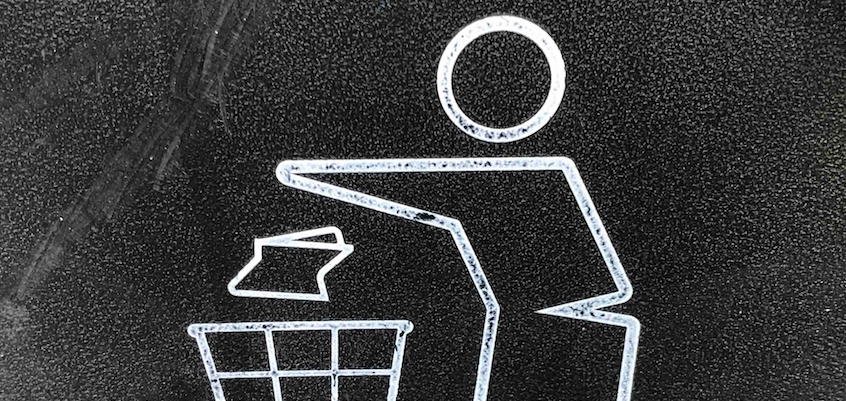
7. RECYCLE HOUSEHOLD WASTE
Reduce, reuse, recycle is now a familiar phrase for most households but we still lag behind Europe in our efforts.
If you’re not sure where to begin, take a look at your local council’s website for details first. Different places have different rules depending on the types of recycling plant they’re contracted with.
Some will take black plastic, others won’t. And many will require separation of glass, plastic, cardboard and tins. So be nice to your local collection people and take a minute to make their lives easier by adhering to this. Chances are they won’t take the materials if you’ve not complied, and it’s a faff having to sort things out afterwards, especially if they’ve been out in the rain.
Credits
Photo by Sarah Dorweiler on Unsplash
Screenshot of Ecosia site
Photo by Luca Bravo on Unsplash
Photo by Daan Stevens on Unsplash
Photo by Gaelle Marcel on Unsplash
Photo by Henri Pham on Unsplash




